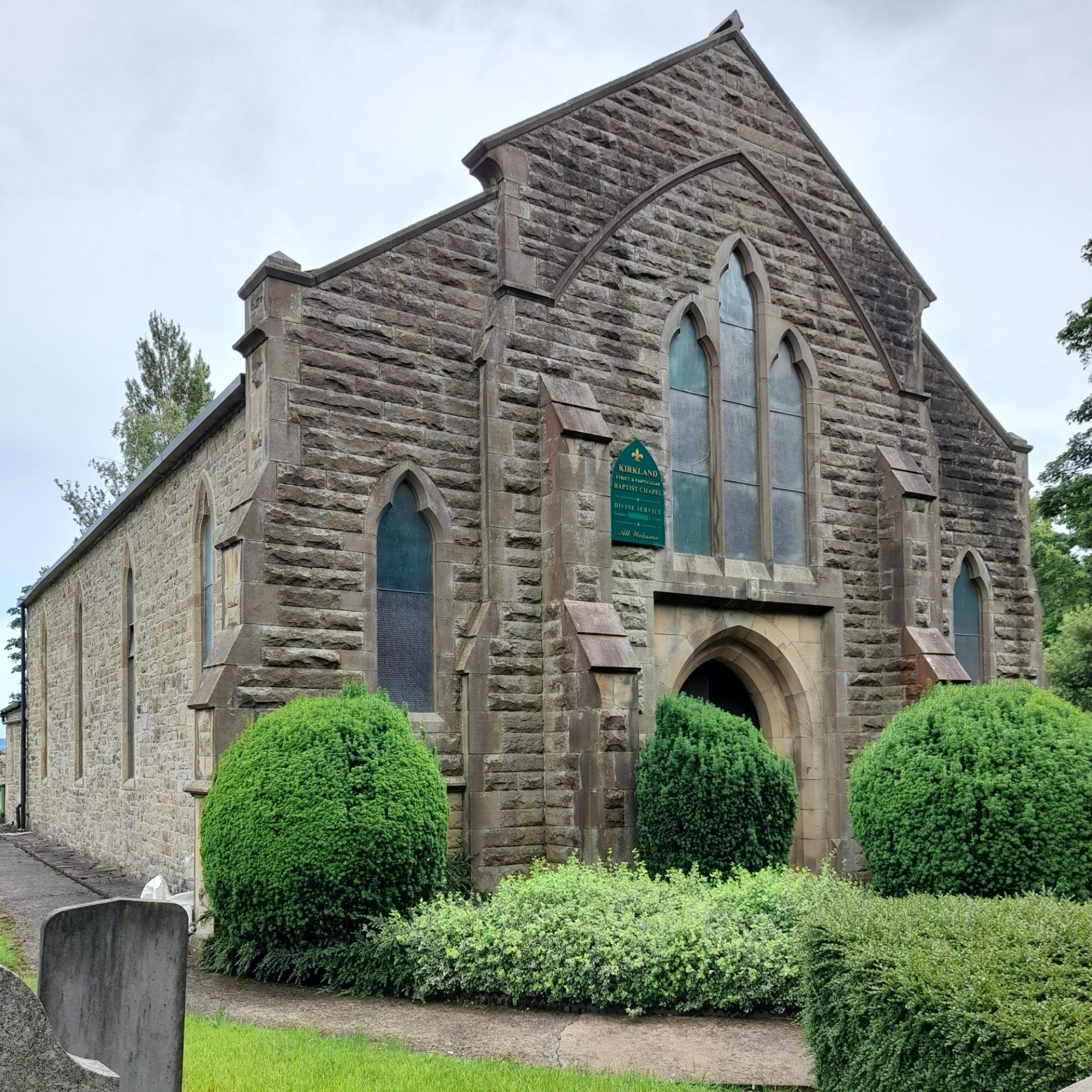Much of the History below is courtesy of S.F. Paul’s “History of the Gospel Standard Baptists”.
The Strict Baptist cause at Nateby near Garstang dates back to 1828 when four persons were baptized in a pond at Primrose Hill, Nateby on 14 May 1828. Three others were added and Mr Worrall, the pastor at Blackburn constituted a Church.
In the early days, meetings took place at the house of Mr John Shaw, a farmer at Primrose Hill, who also ministered to them in the Gospel.
By 1834, the house became too small and they removed to a place at Doff Cocker, which was also a farmhouse where Mr Shaw lived. Meetings took place there until 1839 though there appeared to be no opportunity to provide a purpose built facility as the local Squire, who was also Mr Shaw’s landlord, owned all the land around and would not part with any of it for the purpose of building a chapel.
One field however, not belonging to the Squire, became available on the death of the owner and there began a sequence of providential events which led to the cause acquiring its own land and building.
Mr Shaw approached the Squire to ask if he intended to bid for the available field but was turned away by the steward who said he had not heard of any such intention. To bid against his landlord and Squire would have been a risky venture for a tenant farmer. Mr Shaw felt free however, having made an enquiry, to go to the auction sale where he successfully outbid a stranger and thus acquired the field.
The next day the steward called and asked Mr Shaw how he could presume to bid against the Squire and demanded the field be given up. It transpired that the stranger was bidding on behalf of the Squire. But John reminded the steward that he had assured him that the Squire had no intention of bidding for the land and stated, “God has given it to me for a chapel, and I would not dare part with it.”
At the chapel Centenary Services more detail was given about the circumstances of this land purchase. Mr Shaw on his way to the sale met the Squire’s gardener who had been sent to bid for the field but instead turned into the Cathouse Inn for a drink. In the meantime, John Shaw went on and secured the sale. On his way home, he passed the gardener lying by the roadside overcome with strong drink and exclaimed, “It is the Lord’s doing, and it is marvellous in our eyes.”
Even more providential was the result of the wrangling that followed. The Squire greatly desired the field to straighten up his estate at Kirkland Hall but John Shaw refused to hand it over which was a remarkable example of faith and courage. Eventually they came to terms which proved to be very useful for the building of the chapel itself. In return for the field, the Squire gave land nearer to the farm plus £100 towards the building which was sufficient to pay for the materials while the labour was carried out by one and another freely and voluntarily. Thus the small chapel was free of debt and opened by Mr William Gadsby on 8 August 1839.
John Shaw ministered to the friends in the chapel but in the following December was taken ill and died. We are told of John Shaw’s ministry, “though plain, it was at times solemn, pointed, and searching, and at others shrewd and confounding.”
Following the death of John Shaw, the Church entered a turbulent period with some members forming a breakaway cause which eventually came to nothing. It is reported that “contention and strife began, heresies and a party spirit sprang up, until at last the Trustees had to be called in.” As a result, William Dunderdale was appointed deacon and engaged the ministry of Thomas Walsh and the Church began to grow and the work flourished.
By 1876 the congregation was too large for the chapel and it was decided to build a new one which was completed in 1877 (the present day chapel). At the opening services Mr A. B. Taylor preached in the morning from Isaiah 63 v 1 and in the afternoon Mr Thomas Walsh preached from Isaiah 28 v 16 “Behold, I lay in Zion for a foundation, a stone……..” After the collections it was announced that the chapel was debt free. The cost was about £1,450. The stone from the old chapel was used in the new building.
In 1877 Mr Bushall, the landowner of Nateby, presented to the Church a piece of land sufficient to provide a considerable enlargement to the burial ground and he also gave freely to the building fund though his offer to bring in his own minister was declined since he was not a Baptist.
A number of the early deacons of the Church are listed as Mr William Dunderdale, Mr John Crane, Mr James Hesketh, Mr John Pearson, Mr George Dunderdale, who was sent out to preach in 1901 and Mr James Southward. The deacons at Kirkland Chapel often addressed the congregation in the absence of a minister. Ancestors of some of these deacons attend the chapel to this day.
After Mr John Shaw, there was no further Pastor until 1941 when, after much exercise, Mr George Rose became Pastor in January 1941. He resigned his charge several years later and returned to the South of England.
